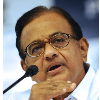Offical

Chidambaram Palaniappan, commonly called P Chidambaram, has been India’s Minister of Finance since July 31, 2012. He was previously the union minister of Home Affairs until July 31, 2012. Chidambaram is considered a senior leader within the ruling Congress party.
Like many leading Indian politicians, Chidambaram comes from a wealthy merchant family. He graduated from Madras Christian College Higher Secondary School, a prestigious private school. He then earned his bachelor’s in statistics from The Presidency College, Madras and his bachelor’s in law from Madras Law College.
In 1968, he earned his Master’s in Business Administration from Harvard.
After working as a Madras High Court lawyer, Chidambaram was first elected to the Look Sabah in 1984 from Tamil Nada’s Savaging constituency.
Chidambaram is widely considered smart and capable. In 1991, as Minister of Commerce in the PV Narasimha Rao-led Congress government, he reportedly rewrote India’s foreign trade policy in one go during a marathon eight-hour session.
But he has equally frequently been accused of graft. And in 1992, he resigned over allegations that he received discounted stocks in Fairgrowth, a company found guilty of a stock scam.
The affair initiated a feud with rival Tamil politician Subramanian Swamy, who petitioned the Supreme Court to investigate evidence Chidambaram stashed huge sums of black money abroad.
In 1996, he quit the Congress party and, along with G Moopanar, launched the Tamil Maanila Congress because he disapproved of Narasimha Rao’s alliance with J Jayalalitha’s AIADMK.
Chidambaram was widely acclaimed for the budget he presented in the parliament in 1998 as the Finance Minister of the United Front government, a ruling coalition comprised of 13 different parties that notably excluded both the Congress and the Bharatiya Janata Party (BJP). The corporate sector welcomed his measures to reduce tax burdens and simplify foreign investment. But his representation of companies with dubious records like Vedanta and Enron, who’d benefit from these measures, raised accusations of a conflict of interest.
In 2004, Chidambaram returned to the Congress party for his second stint as finance minister in the Congress-led United Progressive Alliance I government
Chidambaram seemed far less comfortable as the Minister of Home Affairs, a portfolio he assumed at the end of 2008. Chidambaram quickly stumbled. He fought the Naxalite insurgency with bellicose rhetoric and failed operations, most notably a Naxalite massacre of 76 Central Reserve Police Force fighters on April 6, 2010.
He also offended many politicians and citizens when he blamed Delhi’s migrant workers for an uptick of crime in the capital.
Chidambaram has continued to be controversial. He was re-elected for the seventh time to the Parliament from Sivaganga in 2009. After the election, his rival demanded a recount, claiming Chidambaram had cheated. He was also accused of complicity in the 2G scam, a charge that he has denied. The charge revived taunts by Swamy that Chidambaram was one of India’s leading black money hoarders.
On July 31, 2012, he became the Minister of Finance for the third time, tying Manmohan Singh’s record for holding the portfolio.
- Latest News




